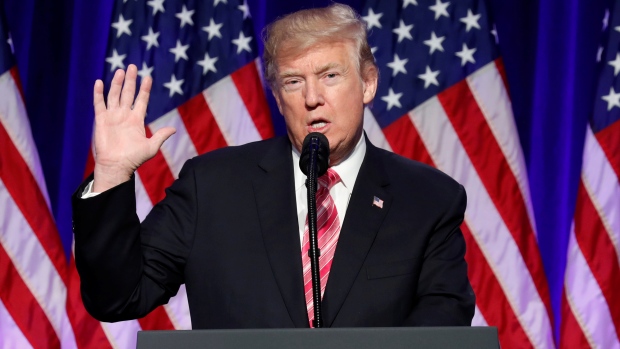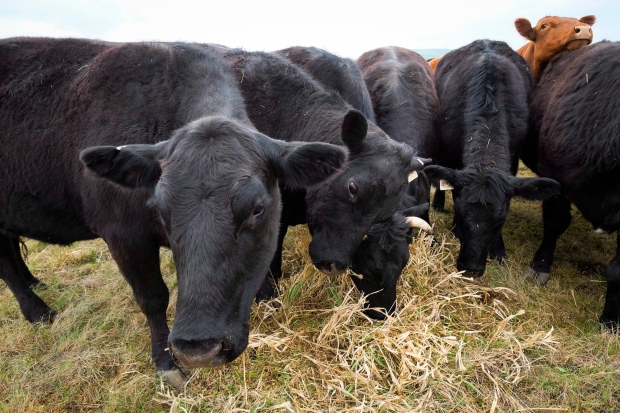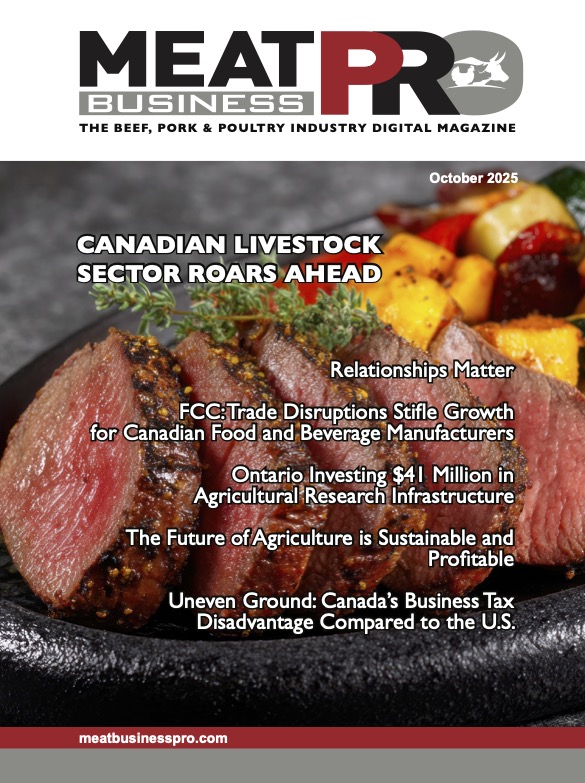Alberta Exporters Hope NAFTA Can Be Saved But Ponder Life Without It

With a $90 billion annual stake in the deal you have to imagine what is the worst-case scenario
By Tony Seskus – CBC News
As trade officials gather in Washington in search of easy wins amid difficult NAFTA talks, Alberta exporters are sharpening their focus on what happens should the United States drop out of the pact.
Trade officials are meeting in the U.S. capital for stripped-down discussions through Dec. 15 on some of the deal’s less volatile trade issues.
But amid hope of pre-Christmas progress, there is rising speculation President Donald Trump plans to withdraw the U.S. from NAFTA, with leading investment bank Goldman Sachs the latest to suggest such an outcome is likely.
Now some industry officials believe it’s prudent to begin planning for what the future looks like without the 23-year-old trade deal.
“To prepare for worst case, I think, is smart. We’re doing the same thing. But I look at these trade agreements as to what are the opportunities.”
— Alberta Trade Minister Deron Bilous
“You have to imagine what is the worst-case scenario,” said John Masswohl, director of government and international relations for the Canadian Cattlemen’s Association.
“Mr. Trump has said that he intends to withdraw from the NAFTA if he doesn’t get what he wants, and so far we haven’t seen anything to indicate that that’s a bluff. We have to take that seriously.”
Largest Trading Partner
Alberta has a huge stake in NAFTA.According to the provincial government, Alberta’s merchandise exports to the U.S. have averaged nearly $90 billion a year over the past five years.
The biggest chunk of those are attributable to the province’s oil and gas sector — an industry that a recent analysis by BMO Capital Markets deemed to have “low sensitivity” to NAFTA termination.
But petroleum producers aren’t the only ones tied to U.S. trade.
America is Alberta’s largest trading partner for agriculture and food products. The province also does billions of dollars in trade in plastics, machinery and organic chemicals.
Beyond the dollar value of the exports, industries on both sides of the border are increasingly integrated, adding complexity to the NAFTA discussion.
Exactly how a U.S. withdrawal would impact these industries is an open question, but observers say one thing seems clear: trade won’t get cheaper.
“Our trade with the U.S. is not going to stop. It will, however, get more expensive,” wrote Naomi Christensen, a senior policy analyst with the Canada West Foundation, in a recent analysis.
The U.S. is a vital market for Alberta beef, but NAFTA uncertainty underscores the importance of improving international market access. (Jeff McIntosh/Canadian Press)
Looking Back To 1993
In the event of an American withdrawal, many expect trade will revert to the old Canada-U.S. Free Trade Agreement, at least for a time.None of Alberta’s top 10 exports to the U.S. would face additional tariffs under that pact, Christensen said
But if NAFTA goes down, the earlier agrement may not last.
“You have to assume that disappears as well,” said Masswohl.
“Maybe there’s a couple of months transition in between there, but I think there’s still issues with that agreement that would have to be negotiated, and that takes you right back into the negotiation that would have just failed.”
Trade between the countries would then be governed by higher World Trade Organization (WTO) tariff schedules. “In the short term, it could also give President Trump a tariff stick to inflict damage in certain sectors,” Christensen says.
Of note for Alberta, a WTO scenario would see tariffs applied on petroleum liquids crossing the border, with heavy oil from the Athabasca oil sands facing more significant fees than light oil.
Still, Christensen does not believe the WTO tariff schedule would be crippling.
“It would hit the value of about 70 per cent of what Alberta exports to the U.S.,” she said in an interview.
“But, again, the tariffs aren’t super high: like 6.5 per cent on plastics, five to 10 cents per barrel depending on how light or heavy the oil is. I actually think that the tariff aspect wouldn’t be that drastic.”
Whether the tariff impact would be drastic or not, there’s trepidation about anything that could impede trade.
Deal Breaker For Canada
There’s discussion whether non-tariff barriers, such as certification standards on imports, will re-emerge.Alberta exporters also hold dear the dispute resolution mechanisms under NAFTA. Those include binational panels that rule on trade complaints like concerns over subsidies.
“It’s a deal breaker for Canada,” says Ellen Goddard, an agricultural economist who teaches trade at the University of Alberta.
“If we don’t have a dispute resolution mechanism of any sort … then we have to go through the U.S. courts with every trade dispute.”
She said it doesn’t make a lot of sense for the U.S. to want to scrap that mechanism, which creates efficiency and clarity.
Indeed, she can’t see a credible reason to flush the trade pact at all.
“I’m not sure I am clever enough to figure out the end game,” she said of the heated political rhetoric.
Indeed, predicting U.S. politics these days is a mug’s game — even for a politician.
So rather than make predictions, Alberta Trade Minister Deron Bilous says he’s focused on trying to modernize NAFTA. That means borders thinned and barriers reduced.
Bilous says Alberta officials have been meeting with U.S. senators, state leaders and House representatives to press their point.
“Listen, to prepare for worst case, I think is smart. We’re doing the same thing,” said Bilous in an interview.
“But I look at these trade agreements as to what are the opportunities.
“We don’t want to see NAFTA go backwards.”












